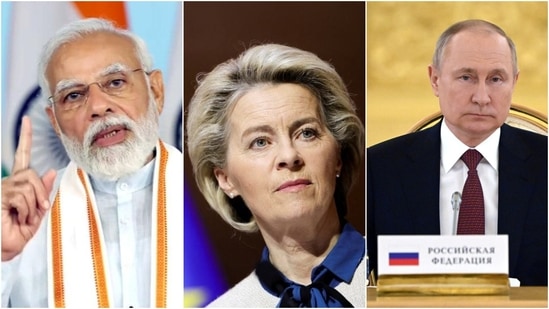In a significant move that marks a new chapter in global sanctions enforcement, the European Union has sanctioned the Vadinar refinery, India’s second-largest oil refining facility, as part of its 18th sanctions package against Russia. The refinery, operated by Nayara Energy and partially owned by Russia’s Rosneft (49.13%), is the first Indian entity to be directly targeted under EU measures aimed at curbing Moscow’s war revenue.
“For the first time, we’re designating a flag registry and the biggest Rosneft refinery in India,” EU foreign policy chief Kaja Kallas said in a post on X.
The sanctions are designed to cut off refined petroleum products originating from Russian crude — even if processed outside Russia — from entering EU markets. They also prohibit EU-based firms from providing shipping, insurance, or financial services linked to Nayara’s operations involving Russian oil.
Due to EU sanctions, Nayara faces restrictions on exporting petroleum products like petrol and diesel to European nations.
“We are standing firm. The EU just approved one of its strongest sanctions package against Russia to date,” Kallas said. “We’re cutting the Kremlin’s war budget further, going after 105 more shadow fleet ships, their enablers, and limiting Russian banks’ access to funding.”
The announced sanctions included restrictions on Nord Stream pipelines and a reduced price ceiling for Russian oil exports.
Targeting the India Russia Oil Trade
Located in India’s Gujarat, Devbhumi Dwarka district, the Vadinar refinery processes up to 20 million metric tonnes of crude oil per year. Since 2022, it has emerged as a major processor of discounted Russian crude, which has flowed in large volumes following the West’s initial sanctions on Moscow after the Ukraine invasion.
While Nayara Energy is technically an Indian company, its ownership structure — with Rosneft holding a strategic minority stake — has drawn increased scrutiny from Western policymakers. The EU now sees Indian refiners like Nayara as potential sanctions loopholes, allowing Russian oil to be repackaged and re-exported.
The EU’s action includes:
Ban on exports to Europe of refined fuels produced using Russian crude oil, even if processed in India.
Restrictions on EU insurers, shippers, and financial service providers from facilitating transport or sale of such fuels.
A lowered oil price cap, reducing the permitted price for Russian crude sold to third countries from $60 to approximately $47.6 per barrel.
This move effectively severs EU-linked logistical and financial channels for crude processed at Vadinar, isolating it from global markets tied to Europe.
India’s Fiery Response
Meanwhile India has rejected the EU’s moves, with the Ministry of External Affairs (MEA) condemning the sanctions as unilateral and extraterritorial. In a statement issued on July 19, MEA spokesperson Randhir Jaiswal said:
“India does not recognize unilateral sanctions imposed by individual jurisdictions. We consider this move to be legally untenable under international law and deeply concerning from the perspective of our energy security.”
The Indian government further emphasized that it will continue to prioritize energy affordability and sovereignty while calling on the EU to avoid “double standards”.
“The government of India considers the provision of energy security a responsibility of paramount importance to meet the basic needs of its citizens,” he said.
Slamming the EU for its double speak Jaiswal said, “We would stress that there should be no double standards, especially when it comes to energy trade.”
India’s oil imports from Russia rose marginally in the first half of this year, with private refiners Reliance Industries Ltd and Nayara Energy making about half of the overall purchases from Moscow.
Russia continued to be the top supplier to India, accounting for about 35% of India’s overall supplies, followed by Iraq, Saudi Arabia, and United Arab Emirates, the data showed.
Earlier this week, US President Donald Trump warned that countries purchasing Russian exports could face sanctions if Moscow fails to reach a peace agreement with Ukraine within 50 days.
India has dismissed these efforts of the west “I’m not worried at all. If something happens, we’ll deal with it,” India’s Oil minister Hardeep Puri said at an industry event in New Delhi. “India has diversified the sources of supply and we have gone, I think, from about 27 countries that we used to buy from to about 40 countries now,” he said.
This move by the EU is sure to alienate the world’s largest democracy, India and Russia have historical deep ties and great relationship both in trade and military. Putin and Modi too share fantastic relations. The west believes they can dictate this relationship just like they have pushed many other nations away from Russia.
However, India has shown that it is not a country that accepts the western lobby’s demands, it has consistently maintained that it will make its own decisions in its own way, and it cannot be forced to make policies based on Western demands. These sanctions are sure to rile up New Delhi which will no doubt find a way around them and continue its relationship with Russia; however this move will surely dent the western relations with India.
